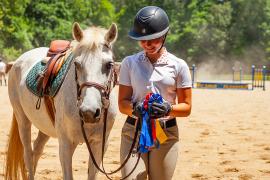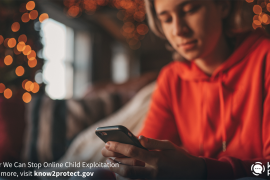I put down the phone and take a deep breath. Snippets from the last few conversations ring in my ears.
"My child was doing fine in school until COVID hit. Now he's failing his classes and not doing his homework."
"She's really struggling to keep up."
"He just can't organize everything. Every teacher has different emails, different learning portals. It's a mess."
"The school isn't communicating with us about her grades."
This describes the immense stress parents are feeling and the worries I hear every day in my job as an Admissions Coordinator. However, the worst lament I hear, "They just hate learning now!" As a former teacher, this observation from parents is extremely troubling. I get the same feeling the more I learn about the phenomenon of COVID learning loss.
Although data is sparse, the stats seem to support these anecdotal reports from parents. By June 2021 students are, on average, expected to be five to nine months behind in math. In Fairfax County Public Schools, the percentage of children receiving at least two failing grades rose by 83% in one semester. Montgomery County Public Schools saw failing grades in English and math jump as high as sixfold among its most vulnerable student population. And this is not accounting for the multitude of students who could not, or would not, complete assessments.
Aside from the obvious barriers to learning that I hear about daily, such as students having a hard time accessing classwork, struggling with "burnout," teacher stress, and parents too busy or exhausted to help with homework, the (so far, limited) research suggests that one of the biggest impacts COVID has upon students is an increase in their anxiety and depression — which of course impedes their ability and motivation to learn. This spike is particularly true for students who struggled prior to COVID. Between March and October of 2020, the CDC reported a 31% increase in mental-health related emergency room visits among adolescents aged 12–17. In another study out of China, researchers examine a sample group of 2,330 school children for signs of "emotional distress." Despite only being locked down for an average of 33.7 days, 22.6% of them reported depressive symptoms and 18.9% experienced anxiety.
Even students who had no specific challenges prior to COVID are now struggling with schoolwork, motivation, and attention, with teachers concerned that more and more of them are entering the "vulnerable" population category.
But there is good news! There is so much we can do as parents, teachers, administrators, and even trusted camp counselors and camp directors to support the mental health of children, curb learning loss, and reengage students with their love of learning. One such way to help students is by providing them with a summer of much-needed fun and outdoor activities, while also integrating a few hours a week of engaging educational opportunities.
Depending on the age of the student, engaging educational opportunities can include anything from the more traditional (reading, tutoring, and summer school) to the more innovative (private and live virtual lessons in a subject or topic of a student's choice, hands-on project-based learning activities, and even master class experiences) that remind students that learning can look and feel a lot of different ways, even fun!
As a former teacher, I know even the smallest changes and intentionally integrated educational opportunities can result in incredible change for a student. I've been lucky enough to see it time and time again, so I know it's possible. I know with the right steps this summer; I will hear about it from happy and relieved parents in the fall.
Olivia Chapman is an Admissions Coordinator at Fusion Global Academy, a fully virtual accredited middle and high school where classes are one-to-one and personalized for each student. This summer they are offering a variety of academic and enrichment options that can be taken from anywhere in the world and work with your current summer plans and schedule. Learn more at www.FusionGlobalAcademy.com/Summer
Sponsored by Fusion Global Academy.
Sources
- Arkin, Daniel. "Covid Stress Taking a Toll on Children's Mental Health, CFC Finds." NBCNews.com, 12 November 2020.
- Blackall, Molly. "It's a Struggle: Three Teachers on Remote Learning and Returning to School." The Guardian, 25 January 2021
- Dineen Wagner, Karen. "New Findings About Children's Mental Health During Covid-19." Psychiatric Times, 7 October 2020.
- D'orio Wayne. "Key to Preventing Children's Learning Loss – and Social Regression – During Covid 19 School Closures: Support from Family and Peers, Study Finds." The74million.org, 3 January 2021.
- Hinsliff, Gaby. "Behind Closed Bedroom Doors, A Teenage Mental Health Crisis is Brewing." The Guardian, 29 January 2021.
- Kluger, Jeffrey. "The Coronavirus Seems to Spare Most Kids from Illness, but its Effect on their Mental Health Is Deepening." Time.com, 23rd July 2020.
- Reilly, Katie. "The Learning Gap Is Getting Worse as Schools Rely on Remote Classes, Especially for Students of Color." Time.com, 8 December 2020.
- Villarreal, Alexandra. "The Most Stressful Time Ever: How Coronavirus Affects Children's Mental Health." The Guardian, 17 April 2020.
The views and opinions expressed by contributors are their own and do not necessarily reflect the views of the American Camp Association or ACA employees.



